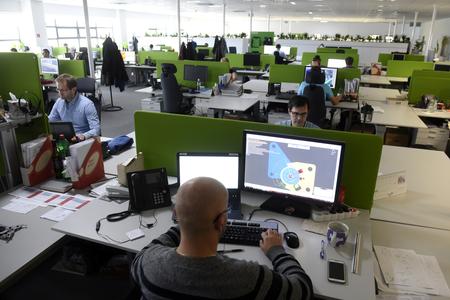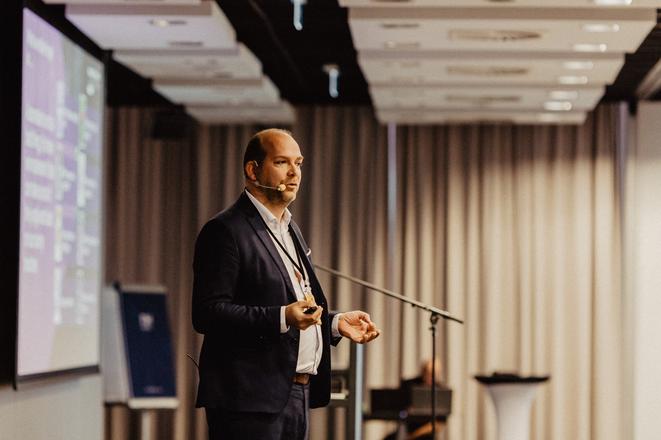This text was published as part of the special supplement on Business service centres, prepared in cooperation with AmCham Slovakia BSCF.
Over the last 20 years, shared service centres (SSCs) and business service centres (BSCs) have become a significant pillar of the Slovak economy. However, to remain globally competitive, the sector needs a more active approach from the government while the centres themselves need to transform from low-cost ones into centres of excellence that help their parent companies grow, indicated Arjen Sader, global business services advisory leader at Dentons.
The Slovak Spectator spoke with Sader, who has been working in the global sector of business service centres for almost 20 years and has seen this industry change significantly. He discusses the challenges the centres are facing, how the education system should change as well as automation and robotisation.
The Slovak Spectator (TSS): Why did you headline your lecture at the fifth annual conference organised by the Business Service Center Forum (BSCF) in Bratislava last October, Welcome to the Jungle?

Arjen Sader (AS): Because it has become a jungle. Today, the agendas of shared service centres are completely different from what they used to be. This industry is now such a complex environment in terms of its activities, ranging from the simple processing of information towards very high-end processes. Its leaders have also gotten to a stage where they do not know how to move on this fast-moving track. Now we have to figure out how to get out of this jungle and make sure we are delivering for the future.
TSS: Is it possible to imagine how these centres will look within the next 10 to 20 years?

AS: They will be to a large extent digitised, fully standardised and be an engine for their parent organisations to grow. They will probably have less workers and the location of their operation will be less important. It will be more important to find the talents that actually can carry out the processes in the future. I don’t believe that in this region there would be a lot of centres doing simple activities like basic accounting or reporting as they would become too expensive for that. They would move towards smarter activities with higher added value.


 Arjen Sader speaking at the conference dedicated to the business service centre sector. (source: Courtesy of AmCham)
Arjen Sader speaking at the conference dedicated to the business service centre sector. (source: Courtesy of AmCham)
 (source: AmCham)
(source: AmCham)